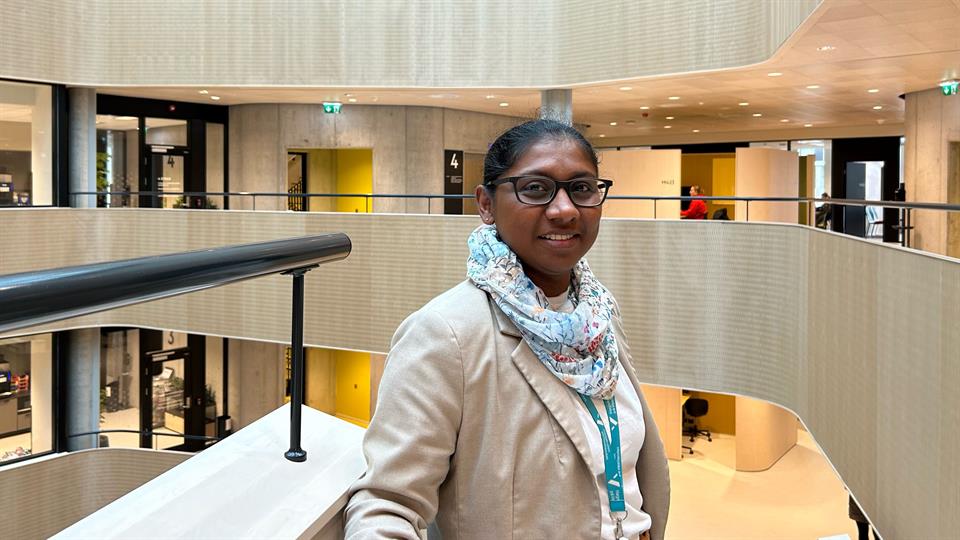
“Cochrane has opened many doors and given me a unique international network”, says Ishanka Weerasekara.
Ishanka is an associate professor working at the section of Evidence-based practice at Western Norway University of Applied Science (HVL). She is a registered physiotherapist in Australia. Through her network in Cochrane, she has introduced to a great network, including the section of Evidence-based practice at HVL. She recommends others to take advantage of the opportunities that Cochrane provides.
“It offers a unique opportunity for international mobility and networking, providing significant benefits. For me, it opened doors not only in research but also in my career," says Ishanka.
HVL leads Cochrane Norway
This autumn, Western Norway University of Applied Sciences took over responsibility for Cochrane Norway, with associate professor Kristine Berg Titlestad as the Director.
Cochrane is an international, non-profit organization with members from 190 countries, consisting of both health personnel, researchers, politicians and users/patients. The organization aims to help people make well-informed decisions in matters related to health and welfare.
Cochrane works to prepare, update and ensure easy access to systematic reviews of the effects of various health measures. An example is the work Cochrane did during the COVID-19 pandemic, where the organization prepared several reviews of infection control measures.
“That HVL leads Cochrane Norway provides many opportunities, both for HVL as an institution, but not least for employees and students who want to establish stronger networks internationally”, says Kristine.
Digital collaboration
Much of the work in Cochrane is based on networking, with many people contributing from different countries and professions. There are several opportunities for those interested in getting involved in the organisation's work.
One such opportunity is the Cochrane International Mobility (CIM) Programme . In the mobility programme, you can receive training on how to produce systematic reviews or contribute to ongoing work with such reviews. The program is open to everyone and allows for participation either physically, digitally, or a combination of both. The duration is also flexible, ranging from weeks to several months.
“Considering that HVL aims to strengthen international cooperation and increase participation in international research projects, this is a great opportunity to make contacts. Thinking more digitally in international cooperation is also good for the environment”, says Kristine.
A community
It was through the International Mobility Program that Ishanka first came into contact with the Cochrane network. She was in Australia doing her PhD when COVID-19 broke out in 2020. Since the lockdown prevented her from returning her country, Sri Lanka, she started looking for options for a full-time job.
“I worked part-time and explored other opportunities. I wanted to learn new things to enhance my profile, and then I came across Cochrane. I have not regretted it, she says.
“Despite the pandemic, I participated in the mobility program digitally. Even in this virtual setting, I felt a strong sense of community and had the opportunity to get to know others well”, she adds.
Ishanka believes that this is particularly relevant for those who are early in their careers, PhD students and that master's students can also benefit greatly. However, there are no restrictions for others who are interested.
More opportunities for involvement
Another opportunity to get involved in Cochrane is through Cochrane Engage . Cochrane Engage serves as a platform for making connections. Here, there are several possibilities. For example, you can contribute to systematic reviews, get involved in specific tasks related to consumer input or language translations, or post your review project if you need a team interested in the same topic to contribute their knowledge to the project.
Cochrane Crowd is a platform where people can register and assist researchers working on a specific project. Volunteers from around the world who register on this platform, for example, help identify randomised controlled trials to be included in a systematic review. This requires no previous experience. Periodically, there are global screening challenges that last 24 or 48 hours, engaging participants from different countries simultaneously.
Cochrane offers even more opportunities for mobility and involvement. They also arrange a number of courses and seminars.
If you are interested in learning more about these opportunities, you can contact the Director of Cochrane Norway, Kristine Berg Titlestad .
